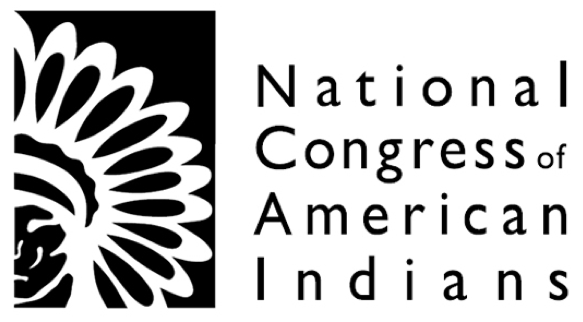Latino Rebels received the following release today from the National Congress of American Indians. Online version is here.
Washington, DC – Just days after President Obama joined the growing chorus of those calling for the Washington NFL Team to consider changing its name, the team’s leadership justified the use of their “Indian” mascot as a central part of the team’s “history and legacy.” A new report released today by the National Congress of American Indians (NCAI), titled Ending the Legacy Of Racism in Sports & the Era of Harmful “Indian” Sports Mascots also outlines the team’s ugly and racist legacy, while highlighting the harmful impact of negative stereotypes on Native peoples.
The report details the position of NCAI, the nation’s oldest, largest, and most representative American Indian and Alaska Native organization. The following is a statement released by NCAI’s Executive Director Jacqueline Pata along with the report:
“The report NCAI has released today provides the history of an overwhelming movement to end the era of harmful “Indian” mascots – including the fact that Native peoples have fought these mascots since 1963 and no professional sports team has established a new ‘Indian’ mascot since 1964.
NCAI Harmful Mascots Report Ending the Legacy of Racism: October 2013
There is one thing that we can agree with the Washington football team about – the name ‘Redsk*ns’ is a reflection of the team’s legacy and history. Unfortunately, the team’s legacy and history is an ugly one, rooted in racism and discrimination, including the origins of the team’s name. It is becoming more and more obvious that the team’s legacy on racial equality is to remain on the wrong side of history for as long as possible.
The team’s original owner, George Preston Marshall, named the team the ‘Redsk*ns’ in 1932, just months before he led a 13-year league wide ban on African American players in the NFL. Nearly 30 years after the race-based name was chosen, Marshall was forced by the league to hire the team’s first black player in 1962. He was the last NFL owner to do so.
We’ve released this report and have a firm position on this issue because the welfare and future of our youth is at stake. We are working every day to ensure they are able to grow up and thrive in healthy, supportive communities. Removing these harmful mascots is just one part of our effort to encourage our children to achieve their greatest potential. We’re focused on their future; these mascots keep society focused on the negative stereotypes of the past.
NCAI calls on the NFL, other professional sports leagues, and all associated businesses to end the era of harmful ”Indian” mascots.”
The report details a range of issues: the harm stereotypes have on Native Youth and the overwhelming support for ending harmful mascots by organizations, tribal governments, the NCAA, high schools, community groups, and individuals. The report also reviews in depth the well-documented legacy of racism in the Washington football team’s history, including factual rebuttals to the Washington football team’s false claims that NCAI leadership at one point endorsed the use of the “Redsk*ns” mascot.
The report points to the fact that harmful “Indian” mascots exist while Native peoples remain targets of hate crime higher than any other groups, citing Department of Justice analysis that “American Indians are more likely than people of other races to experience violence at the hands of someone of a different race.” The report also reviews in-depth studies that show the harm negative stereotypes and “Indian” sports mascots have on Native youth. The rate of suicide is highest for Native young people at 18 percent, twice the rate of the next highest of 8.4 percent among non-Hispanic white youth.
In the report, NCAI calls on the NFL, MLB, and NHL to address harmful mascots that profit from marketing harmful stereotypes, “Each of these professional sports businesses attempt to establish a story of honoring Native peoples through the names or mascots; however, each one—be it through logos or traditions — diminishes the place, status, and humanity of contemporary Native citizens. What is true about many of the brand origin stories is that team owners during the birth of these brands hoped to gain financially from mocking Native identity. As a result, these businesses perpetuated racial and political inequity. Those who have kept their logos and brands, continue to do so.”
About The National Congress of American Indians:
Founded in 1944, the National Congress of American Indians is the oldest, largest and most representative American Indian and Alaska Native organization in the country. NCAI advocates on behalf of tribal governments and communities, promoting strong tribal-federal government-to-government policies, and promoting a better understanding among the general public regarding American Indian and Alaska Native governments, people and rights. For more information visitwww.ncai.org



